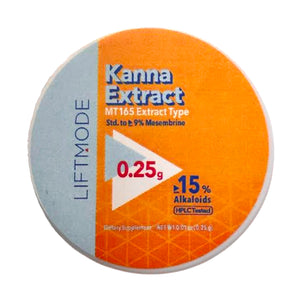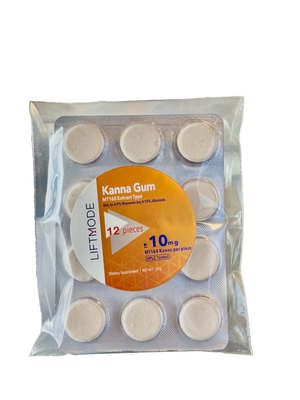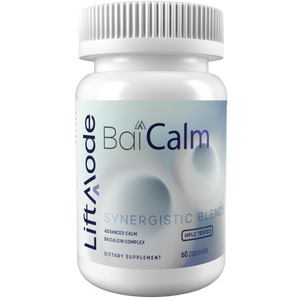Rutin, commonly referred to as vitamin P or rutoside, is a bioflavonoid naturally found in a variety of plants, citrus fruits and black currants. Rutin has become popular in the scientific community as its been found to have many health-promoting benefits.
Some noteworthy health benefits of Rutin include helping with vitamin C absorption, improving circulation, and reducing inflammation. These positive effects on human health are believed to be linked to the compound’s high antioxidant and anti-inflammatory content. It is generally well tolerated and considered safe for use at recommended dosage.
Recently, researchers are exploring Rutin’s beneficial effects on the skin, brain and digestive system. In this article, we will outline the known side effects and interactions of Rutin
. As with any supplement or medication, it is wise to consult your health care practitioner before taking Rutin.
Rutin Benefits
The focus of this article pertains to the side effects of Rutin. To give our readers some context, we’ve included a few of the key Rutin benefits. For more detailed information, check out our great blog post about the Top Rutin Benefits.
-
Promotes a Healthy Circulation
Several studies looked into the possible benefits of Rutin on the circulatory system. They found that Rutin improves blood flow by increasing elasticity of blood vessels and strengthening capillaries. Having strong blood vessels protects the body from vessel related conditions and optimizes overall health.
[1]
Due to its high antioxidant content and rich phytonutrients, Rutin can also help support a healthy metabolism. A recent study examined the effects of Rutin on patients with a history of hypertension. Administration of 500 mg of Rutin once per day showed total drop in cholesterol biomarkers. The study suggested this to be a result of the bioflavonoid’s antioxidant and anti-inflammatory capacity.
[2]
-
Supports a Strong Immune System
Rutin is known to improve immune function. The physiological and immune responses to Rutin were investigated on white shrimp infected with the bacteria
Vibrio alginolyticus. Those which received Rutin had lower glucose, lipid and lactate levels as well as higher survival rates in response to the pathogen.
[3]
Another similar study showed an increase in macrophage phagocytosis activity in shrimp cells exposed to Rutin.
[4] Macrophages are immune cells that eat cell waste and bacteria through a process called phagocytosis. This is an essential defense mechanism which protects the body from disease. Thus, having a higher macrophage count ensures a stronger and healthier immune system.
[5]
Scientists also analyzed the effects of this supplement on humoral and cellular immunity of animal models. The results indicated a higher antibody and immunoglobulin count in those who received Rutin indicating that Rutin can help enhance immune function.
-
Helps to Inhibit Free Radicals and Inflammation
This potent bioflavonoid has the ability to protect the body from free radicals. Scientists believe this is due to Rutin’s high content in bioflavonoids and antioxidants. Antioxidants are plant compounds that have protective effects on the body and promote health through fighting damaged caused by free radicals – these are chemical compounds that damage DNA and as a result can cause health issues. Antioxidants come in and destroy these free radicals. Boosting your antioxidant count means you lower the progression of oxidative stress and reduces inflammation.
[6] [7]
Rutin is also popular for its skin protective and anti-aging qualities.
[8] As a part of the aging process, oxidative stress accumulates in skin cells. This can lead to the skin’s loss of collagen and elasticity, and eventually to the development of wrinkles. The more antioxidants we consume, the slower the progress of these free radicals. Researchers tested a Rutin-based topical cream on human participants. Those who received the cream had better skin elasticity, less wrinkles, as well as increased collagen production in skin cells – indicating the wonderful effects Rutin has on our skin.
[9]
How to take Rutin supplements
There is no known RDI for Rutin, however, most studies indicate doses of 500 mg per day to be safe and well tolerated. Like all new supplements, it is wise to start with a small dose and increase gradually.
One study administering 4 grams indicated a positive and effective response from the participants – however, these doses are well above the typical dosage, therefore it is best to seek the advice of your doctor before taking larger doses of Rutin, especially if you have certain medical conditions or are taking medications.
Important Rutin Side Effects
Rutin supplements taken at the recommended dosage as well as in its whole plant form are generally considered safe. While side effects are generally mild and uncommon, high doses of the supplement may cause adverse effects or allergic reactions. Symptoms include:
- Rashes
- Stomach upset
- Headaches
- Flushed skin
- Itchy eyes
- Muscle stiffness
- High white blood cell count [10]
- Fluid accumulation in the knees [11]
Some symptoms may decrease with time as your body adapts to the supplement. However, if you experience any allergic reactions, immediately stop taking the supplement and seek medical attention. If you have any underlying medical conditions, consult with a doctor before using this supplement.
While the health-promoting effects of bioflavonoids such as Rutin outweigh any rare and potential adverse effects, we always advise our readers to stick to the recommended serving size of 500 mg per day.
Important Rutin Interactions
Although the risk of drug interactions and side effects is minor, Rutin may have some adverse effects, especially for:
Pregnant and breastfeeding women: There isn’t enough information regarding the safety of this supplement for pregnant and nursing women, and therefore it should be avoided.
Children: It is not known whether this medicine will be harmful to children. It is best to avoid giving a herbal supplement to a child without prior consultation with a doctor.
People on blood thinners or anticoagulants: May interact with these as they both act as blood thinners. Blood thinners prevent blood clots which can stop blood flow to the heart. If you have a history of heart disease or suffer from blood clots and/or are taking blood-thinning medications such as warfarin, it is recommended to avoid Rutin without first consulting your doctor.
[12]
Conclusion: Side Effects of Rutin
To summarize, Rutin, a potent bioflavonoid found in plants and fruits, is an incredible supplement for those wishing to improve their overall health. Indeed, it strengthens the immune system by protecting the body from oxidative stress and inflammation and promotes a healthy circulatory system.
The reported Rutin side effects are rare and mild as the supplement is generally considered safe. Nevertheless, some have experienced headaches, dizziness and muscle tension when consumed in high doses. If you experience any allergic reactions, immediately stop taking Rutin and seek medical attention.
The most important consideration when consuming Rutin is the potential interactions that may occur with certain pharmaceuticals, especially blood thinners. Therefore, it is important to consult your doctor before including Rutin in your supplement regime. If you have any underlying medical conditions, particularly heart conditions, are pregnant or breastfeeding, consult your physician to avoid potential adverse Rutin side effects.
Citations and Supporting Literature:
[1] Mansilha, A., & Sousa, J. (2018). Pathophysiological Mechanisms of Chronic Venous Disease and Implications for Venoactive Drug Therapy.
International journal of molecular sciences,
19(6), 1669. doi:10.3390/ijms19061669
https://www.ncbi.nlm.nih.gov/pmc/articles/PMC6032391/
[2] Ziaee, A., Zamansoltani, F., Nassiri-Asl, M., Abbasi, E. (2009). Effects of rutin on lipidprofile in hypercholesterolaemic rats. Basic Clin Pharmacol Toxicol. 2104(3):253-8. doi: 10.1111/j.1742-7843.2008.00368.x. Epub 2009 Jan 20. PubMed PMID: 19175365.
https://www.ncbi.nlm.nih.gov/pubmed/19175365?report=abstract
[3]Hsieh T.J., Wang J.C., Hu C.Y., Li C.T., Kuo C.M., Hsieh S.L. (2008). Effects of rutin from
Toona sinensis on the immune and physiological responses of white shrimp (
Litopenaeus vannamei) under
Vibrioalginolyticus challenge.
Fish Shellfish Immunol. 25(5):581–588.
https://www.ncbi.nlm.nih.gov/pmc/articles/PMC5355559/#b0340
[4] Lin J.P., Yang J.S., Lu C.C., Chiang J.H., Wu C.L., Lin J.J., Lin H.L., Yang M.D., Liu K.C., Chiu T.H., Chung J.G. (2009). Rutin inhibits the proliferation of murine leukaemia WEHI-3 cells in vivo and promotes immune response in vivo.
Leuk. Res. 33(6):823–828.
[5] Ganeshpurkar, A., & Saluja, A. K. (2017). The Pharmacological Potential of Rutin.
Saudi pharmaceutical journal: SPJ: the official publication of the Saudi Pharmaceutical Society,
25(2), 149–164.doi:10.1016/j.jsps.2016.04.025
https://www.ncbi.nlm.nih.gov/pmc/articles/PMC5355559/
[6] Pham-Huy, L. A., He, H., Pham-Huy, C. (2008). Free radicals, antioxidants in disease and health.
Int J Biomed Sci. 4(2):89-96. PubMed PMID: 23675073; PubMedCentral PMCID: PMC3614697.
https://www.ncbi.nlm.nih.gov/pubmed/23675073
[7] LA Pham-Huy et al. (2008). Free Radicals, Antioxidants in Disease and Health.
Int J Biomed Sci. 2008 Jun; 4(2): 89–96.
https://www.ncbi.nlm.nih.gov/pubmed/23675073
[8] Odetti P. R., Borgoglio A., De Pascale A., Rolandi R., Adezati L. (1990). Prevention of diabetes-increased ageing effect on rat collagen-linked fluorescence by aminoguanidine and rutin.
Diabetes. 39(7):796–801.
https://www.ncbi.nlm.nih.gov/pubmed/2354746
[9] Choi, S. J., Lee, S. N., Kim, K., Joo da, H., Shin, S., Lee, J., Lee, H. K., Kim, J., Kwon, S. B., Kim, M. J., Ahn, K. J., An, I. S., An, S., & Cha, H. J. (2016). Biological effects of rutin on skin ageing.
Int J Mol Med. 2016 Jul;38(1):357-63.
https://www.ncbi.nlm.nih.gov/pubmed/27220601
[10] Gotter, A., & Wilson, D.R. (2017)
The Potential Health Benefits of Rutin. Healthline. [online]. Available at:
https://www.healthline.com/health/potential-benefits-of-rutin
[11] Wong, C. & Fogoros, R. N. (2017).
The Health Benefits of Rutin Supplements Verywellhealth. Available at:
https://www.verywellhealth.com/the-benefits-of-rutin-supplements-89508
[12] Sheu, J. R., Hsiao, G., Chou, P. H., Shen, M. Y., Chou, D. S. (2004). Mechanisms involved in the antiplatelet activity of rutin, a glycoside of the flavonol quercetin, in human platelets.
J Agric Food Chem.14;52(14):4414-8. PubMed PMID: 15237945.
https://www.ncbi.nlm.nih.gov/pubmed/15237945




